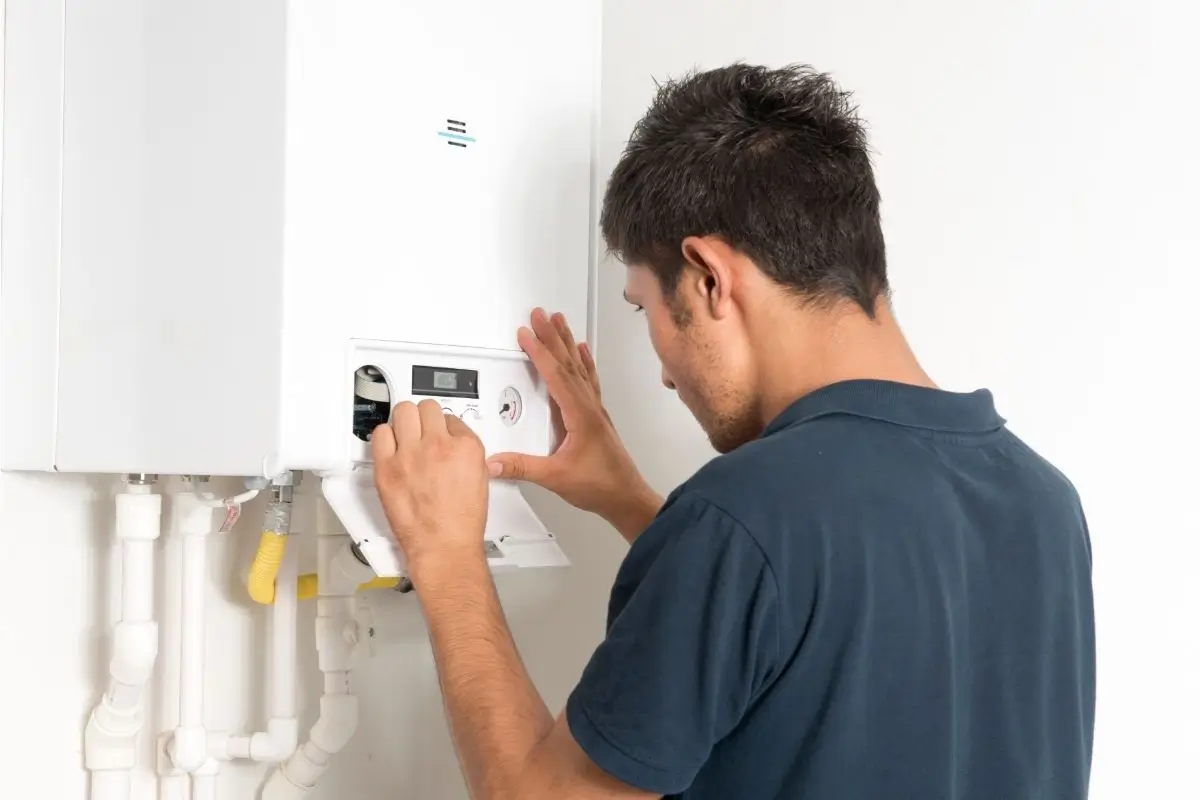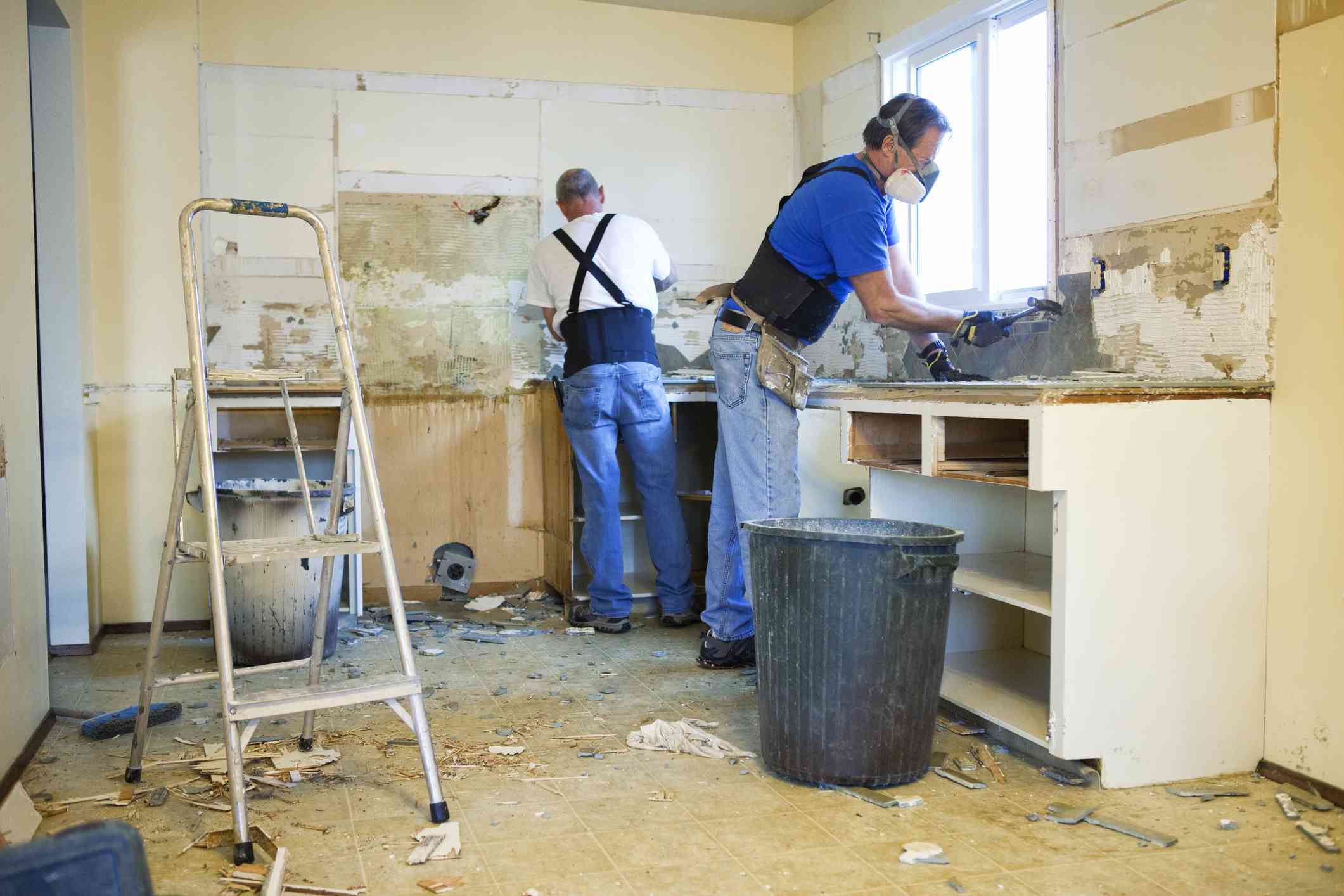When you’re cozied up at home, the last thing you want is to be startled by a loud banging noise emanating from your boiler. It’s not just disturbing; it can also be a sign that something’s not quite right with your central heating system. But fear not! We’re here to demystify this boiler conundrum and guide you through what might be causing these alarming sounds.
The Culprits Behind the Clatter
1. Kettling – More Than Just Noise
source: wundagroup.com
Kettling occurs when deposits of limescale or sludge accumulate on the boiler’s heat exchanger. These deposits can obstruct the flow of water, causing it to heat up excessively and eventually turn to steam within the system. This steam expands rapidly, creating pressure and the characteristic banging noise as it forces its way through the system. This phenomenon not only affects the boiler’s efficiency but can also lead to increased wear and tear on the system, necessitating prompt attention to prevent more severe issues. The best thing to do is call in the pros for boiler repair services so it doesn’t turn into something worse!
2. Air in the System – Disrupting the Flow
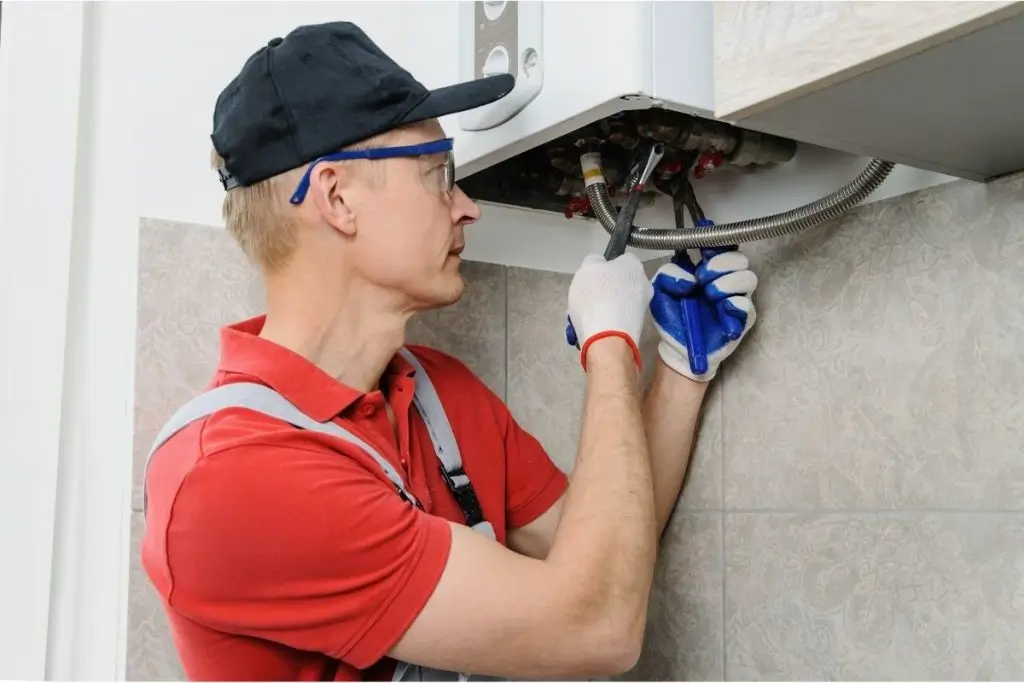
source: wundagroup.com
Air trapped in your heating system disrupts the smooth flow of water through pipes and radiators, leading to uneven heating and noise. The presence of air can create pressure imbalances, causing water to move through the system with irregular, forceful bursts that result in banging sounds. Regular maintenance, including bleeding radiators to release trapped air, is essential to maintain the system’s efficiency and silence.
3. Water Pressure – Finding the Balance
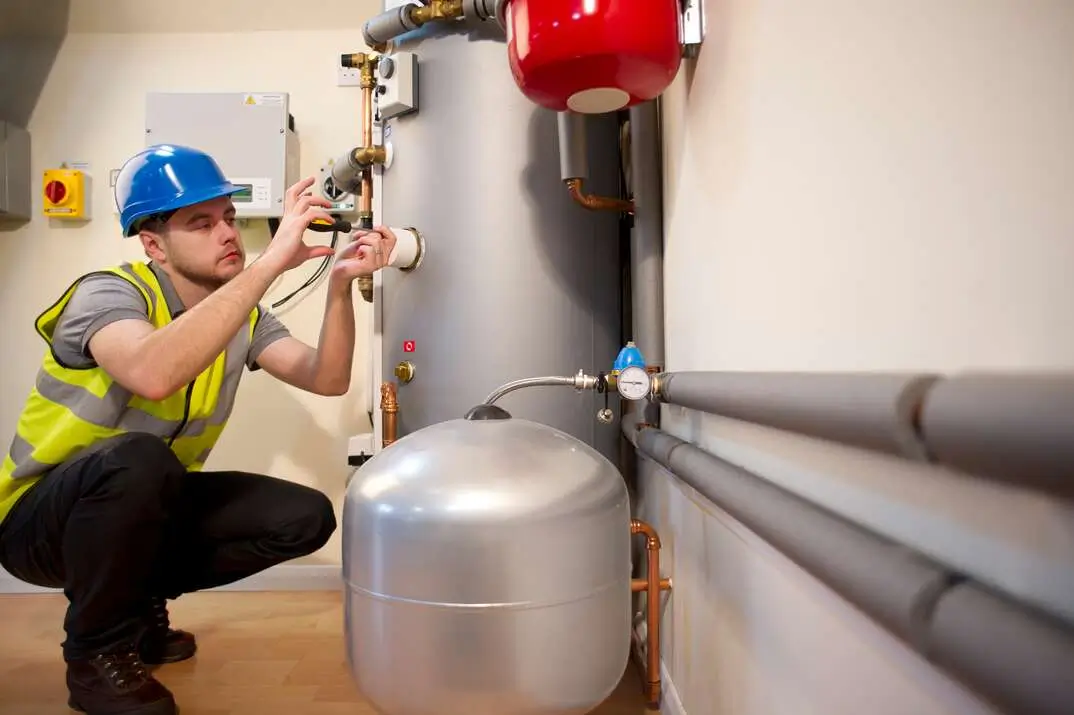
source: elocal.com
The water pressure within your boiler must be maintained within a specific range recommended by the manufacturer. If the pressure is too low, water moves sluggishly through the system, leading to inefficient heating and potential noise. Conversely, excessively high pressure can strain the boiler and the heating system, causing loud banging sounds as the system struggles to cope with the force of the water. Regularly monitoring the boiler’s pressure gauge and adjusting the pressure when necessary can help avoid these issues.
4. Pump Speed – Optimal Flow is Key
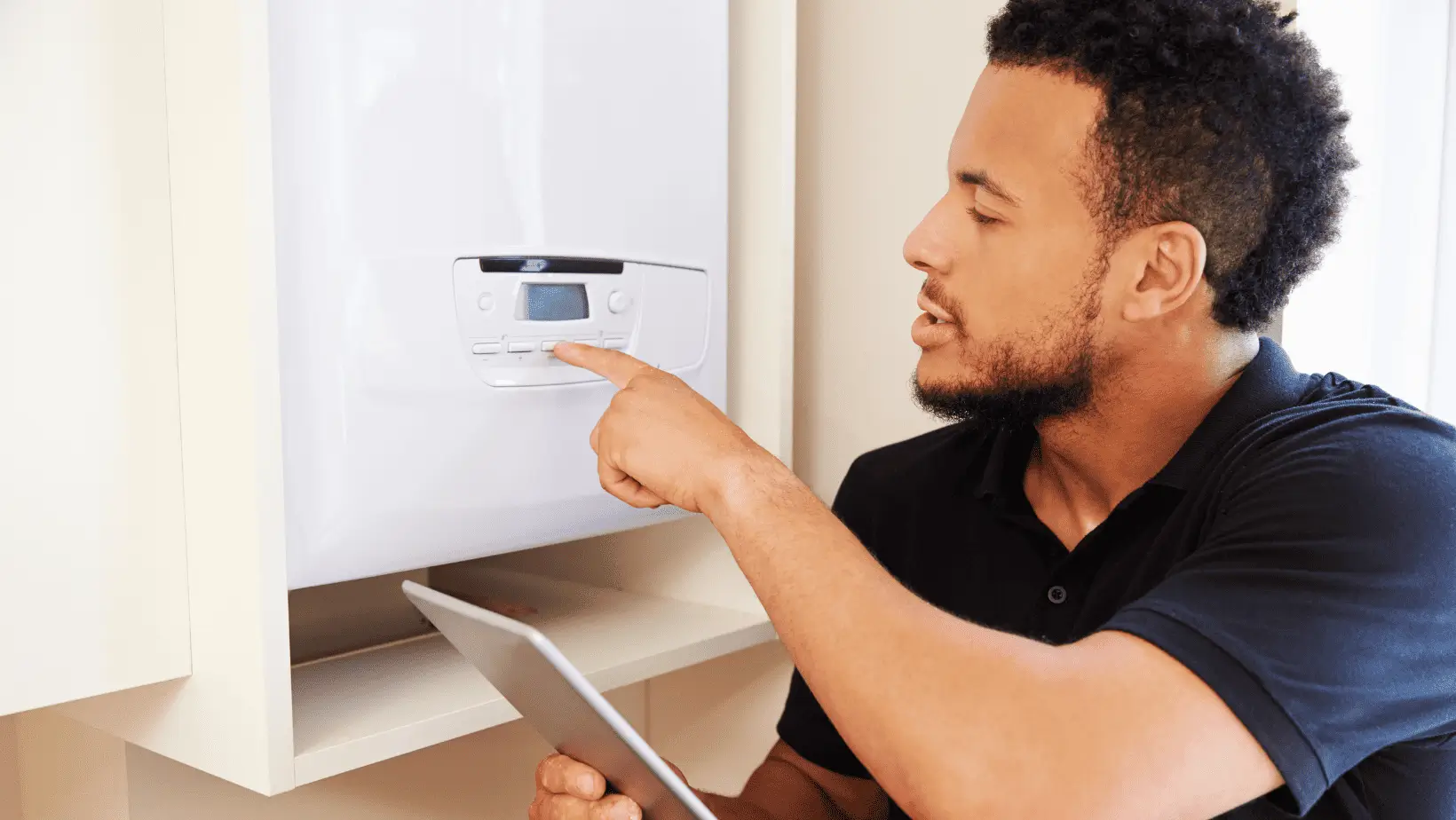
source: dadstoolshed.co.uk
The pump speed should be adjusted to ensure that water is circulated through the system at an optimal rate. If the pump is set too high, water rushes through the pipes with excessive force, leading to turbulence and the resulting noise. Conversely, a pump speed that’s too low can lead to inefficient heating and can also contribute to noise as the boiler works harder to maintain the desired temperature. Ensuring the pump is set at an appropriate speed can mitigate noise and enhance the system’s efficiency and longevity.
Troubleshooting Tips: What Can You Do?
- Check the pressure gauge – Ensure your boiler’s pressure is within the recommended range. It’s a quick check that can save you a lot of headaches.
- Bleed your radiators – If there’s air trapped in the system, bleeding your radiators can release it, restoring peace and quiet.
- Seek professional help – If the problem persists, it’s time to call in a professional. A qualified heating engineer can diagnose and fix the issue, ensuring your boiler’s health and your sanity.
FAQs
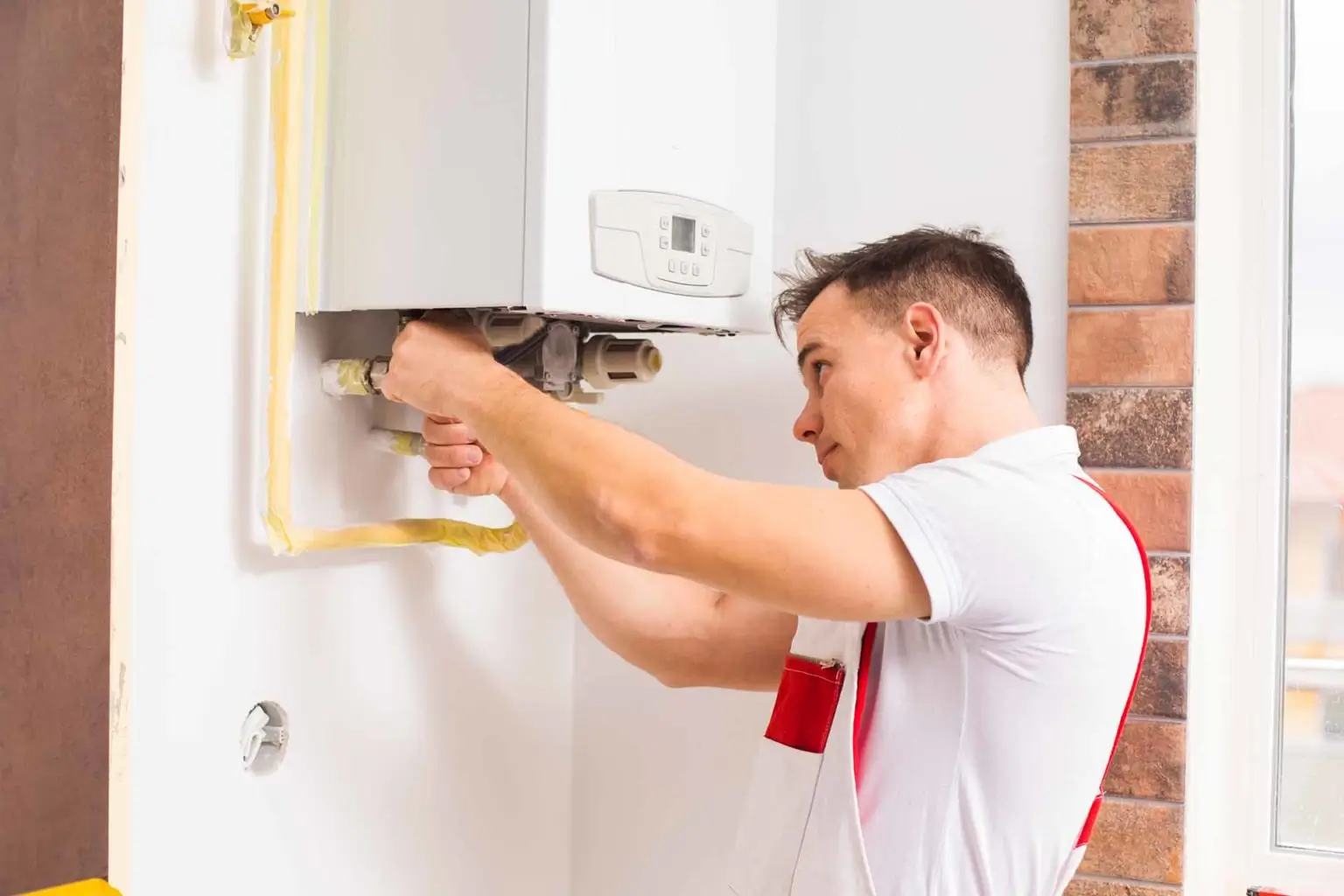
source: checkatrade.com
Can a banging boiler be dangerous?
While not always dangerous, it’s a sign something isn’t right. Always better to be safe and get it checked out.
Will bleeding the radiators solve the problem?
It can help if air in the system is the culprit. If the noise continues, there might be another issue at play.
How often should I service my boiler?
It’s recommended to service your boiler annually to keep it running smoothly and catch any issues early.
Keeping the Peace with Your Boiler
Remember, your boiler is the heart of your home’s heating system. It deserves a bit of attention to keep it running smoothly and quietly. So next time it starts kicking up a racket, don’t just ignore it. Investigate the issue or call in the pros. After all, a quiet boiler is a happy boiler, and a happy boiler means a happy home.

